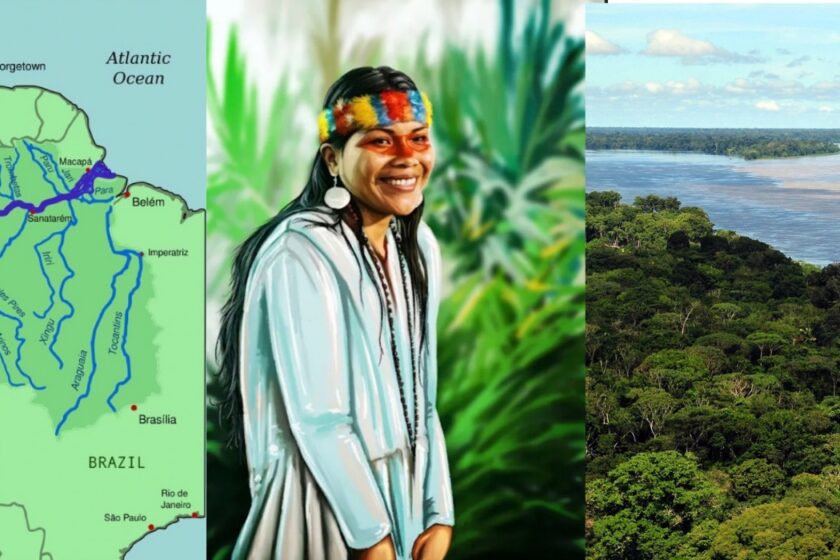The Amazon is our home, and it is not for sale.
Nemonte Nenquimo, an indigenous woman in her thirties, a leader of the Waorani tribe in the Ecuadorian Amazon, has led the fight to protect their tribal lands from sale by the Ecuadorian government to large petroleum companies.
Nenquimo was the plaintiff in the Waorani tribe’s 2019 lawsuit against the Ecuadorian government, claiming that the tribe was not consulted before its land was made available by auction to large petroleum conglomerates. She organized an on-line digital campaign ‘Our Forests Are Not For Sale’ that had more than 400,000 signatures of persons worldwide that supported the Waorani in their fight to defend their ancestral land from deforestation through large oil extraction projects.
In April of 2019, an Ecuadorian court ruled in favor of the Waorani, declaring that 500,000 acres of land in the Amazon, much of it tribal lands, would be protected from oil extraction and that the Waorani would have to be consulted to give their free, prior and informed consent before any of their land could be auctioned off in the future.
In the battles by many indigenous groups, not only in Latin America’s forested areas, but around the world, the Ecuadorian court decision was held up as a major victory for the rights of indigenous tribes to protect and preserve their ancestral land from outright robbery by those who would displace them from their land to merely exploit it.
The fight to protect natural old growth forests from destruction by logging, mining, cattle ranching and the planting of large corporate farms of soybeans and palm oil, has been waged by local tribes and environmental groups for decades, notably in Brazil, Ecuador, Honduras, Peru and Mexico as well as in several Southeast Asian countries including Indonesia and Cambodia.
Actor and environmental activist, Leonardo DiCaprio, said of Nenquimo, who was named by Time Magazine as one of the 100 Most Influential People of 2020, She once told me she was wasn’t going to give up. That she was going to keep fighting. That she would continue to defend the forests that she loves from the industries and oil companies that would devour it.
The Amazon, located in 9 South American counties, is the largest tropical rainforest in the world. A healthy Amazon forest preserved in its natural state, is essential in the fight to limit dangers of climate change from human caused carbon emissions that create the heat trapping greenhouse effect. The Amazon is often described as the lungs of the planet providing 6 percent of life sustaining oxygen in the atmosphere, but its most important natural function is its absorption of vast amounts human caused excess carbon emissions. The Amazon is known as a carbon sink that stores 120 billion metric cubic tons of carbon, as much carbon that is emitted by human activity in 12 years.
The amount of carbon dioxide in the atmosphere today is 415 parts per million, up sharply from 280 parts per million at the beginning of the industrial revolution in 1780s. If we are to keep global atmospheric temperatures below the dangerous threshold of what climate scientists warn of a 1.5 Celsius degree increase above temperatures in preindustrial times, human caused carbon dioxide emissions, the most prevalent of the greenhouse gases, must be sharply reduced and then reach carbon neutrality by 2050.
If the Amazon continues to be deforested at the unprecedented rates seen in the past few decades now approaching 20 percent of the entire forest – the natural systems of the Amazon will become unbalanced, especially affecting the rain from evaporation the trees produce. It will dry out as a pasture and will become a carbon source, not a carbon sink with dire effects on the planet.
If we allow the Amazon to be destroyed little by little, of course, that affects us as indigenous peoples, but it will also affect everyone because of climate change, said Nenquimo. The struggle we do is for all humanity because we all live connected to the land.
The United Nations Environmental Programme granted her the Champions of the Earth award in 2020 in recognition of her work.
The river, the food, the animals, the medicinal plants. We are protecting all of this because the Amazon is our home says Nemonte Nenquimo.
